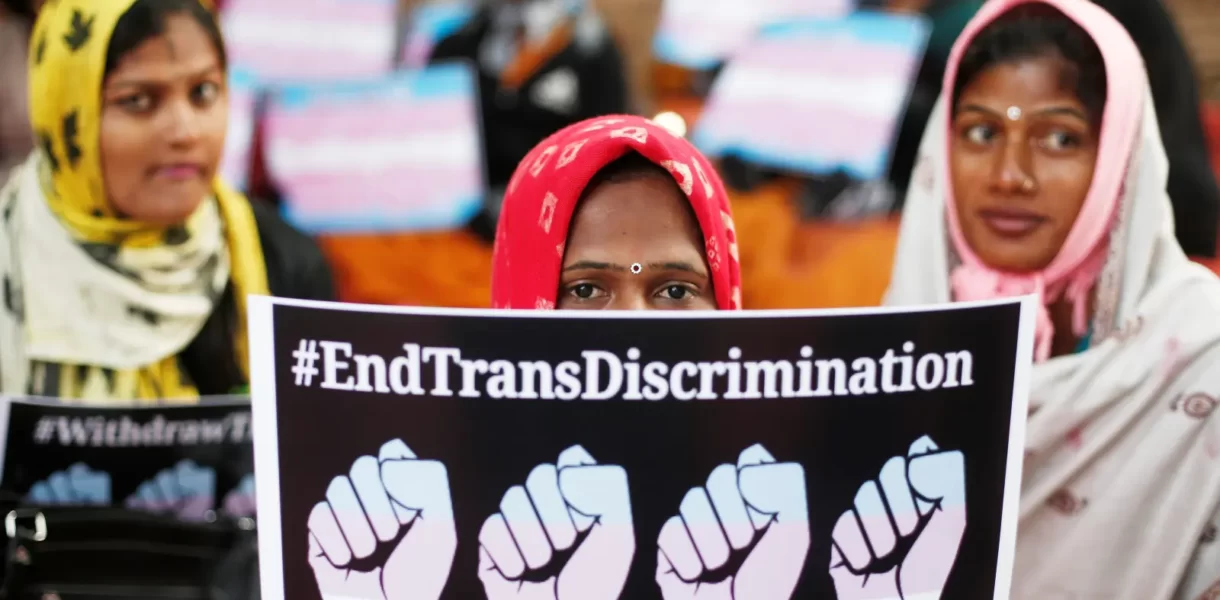
India is a diverse country where people conforming to different ethnicity, and cultures have been living together since antiquity. To respect the said diversity and the consequent emanation of diverse norms and practices for the regulation of family matters; areas like marriage, inheritance and succession, maintenance, etc. are governed under different religious personal laws in India.
These personal laws have codified, consolidated, and to a limited extent, modified the different laws that had developed over a long course of time, in conformity with the interpretation imputed to a religion or culture. Some of these laws and norms, being of ancient origin, do not always comply with the constitutional values and spirit; yet escape scrutiny on their constitutional validity. This is arguably because, as held in the Bombay High Court case of State of Bombay V. Narasu Appa Mali,[1] personal laws do not come within the ambit of the term “laws in force” used in Article 13(1) of the Indian Constitution, and are, therefore, not bound to be in agreement with Part III of the Constitution. The cardinal principle that is most affected by such norms is the principle of equality, especially gender equality. Inheritance law is one such category of personal laws that is in utter violation of gender equality. The Hindu Succession Act, 1956 codifies the Hindu law on inheritance and succession and this article is an attempt to examine extent of biasedness present in the said Legislation against the transgender persons. The first section of the article gives a brief introduction of the Hindu Succession Act (hereinafter referred to as HSA). The second section examines the rights of transgender persons in matters of inheritance, by critically analyzing the provisions of HAS, other legislations, and case laws on transgender persons; and gives some suggestions on the possible changes that could be introduced with respect to their inheritance rights. The third section, which is the last section, makes a conclusive note on the importance of a gender-neutral law in the area of inheritance and succession, and the need to make personal laws subject to part III of the Constitution.
THE HINDU SUCCESSION ACT, 1956
The succession of a property could be rendered in two ways- i) testamentary succession, wherein after the death of the deceased, their property devolves in accordance with the will proclaimed by them before dying. While incase the deceased dies intestate, i.e. without any will, their property would be devolved through the process of, ii) intestate succession.[2]
While through testamentary succession, the property could be devolved to anyone irrespective of their gender and relationship with the deceased; the same could not be said for intestate succession. There were varying rules of Hindu intestate succession owing to the fact that Hinduism in itself is a milieu of a host of cultures and sects. Principally, there existed three-wide sets of succession laws, namely, the Mitakshara law, the Dayagbhaga law, and the matriarchal system of inheritance.[3]
After independence, the Parliament felt a need to codify the Hindu law in an extensive manner to ensure uniformity in practice. As a result of the aforesmentioned, the Hindu Succession Act, along with three other Acts dealing with different subject-matters of Hindu Personal Law, was enacted in 1956. The objective of the HSA was to provide for an invariable scheme of intestate succession for the Hindus with the only exception of certain customs that were expressly to be given an overriding effect over this legislation.[4]
HINDU SUCCESSION ACT AND THE RIGHTS OF INHERITANCE OF A HINDU TRANSGENDER PERSON
The very fact that the term gender equality has for the longest time been viewed in a binary perspective of men and women bears testimony to the severity of gender disparity the transgender persons have been facing.
While women were also subject to grave discrimination with respect intestate succession before, the introduction of the Hindu Succession Act, in tandem with the subsequent amendments and judicial interpretations the said legislation has been put through, has helped ensure gender equality to a good (yet not adequate) extent amongst men and women in the arena of inheritance, let us examine if the same could be said with respect to transgender persons.
Transgender Persons are those persons who do not identify with the gender assigned to them after their birth. As per Section 2 sub-section k of the Transgender Persons (Protection of Rights) Act, 2019 (hereinafter referred to as TPPRA), a transgender “includes trans-man or trans-woman (whether or not such person has undergone Sex Reassignment Surgery or hormone therapy or laser therapy or such other therapy), a person with intersex variations, gender-queer and person having such socio-cultural identities as kinner, hijra, aravani and jogta.”[5]
Under the HSA, the general rule of succession is only in reference to the Hindu males (Section 8) and Females (Section 15). The HSA does not particularly deal with transgender persons at all; they are neither given any rights under the said act nor are they made subject to the imposition of any express restrictions. The aforementioned safely leads to the conclusion that HSA follows a binary notion of gender, i.e. it looks at individuals only as a male or a female leaves no room for the inclusion of other identities. This can further be substantiated by the definition of the term “heir” given under HSA which limits the entitlement of intestate succession to persons who are either male or female.[6] Further, HSA views children only in the rigid prism of sons and daughters, and not transgender persons. This entails that for a transgender person to be entitled to succeed to a property, and also to have their property devolved intestate, it is to be ascertained whether the said person is perceived as a male or as a female, meaning thereby that a non-binary transgender person must stifle their identity. Further, the perception of a transgender person as a male or a female depends upon their assigned gender or in case they have changed the same, then legal recognition allocated to the same. In case, they have changed their identity from male to female and the same is not legally recognised, then they could claim only as a male under HSA. This is concerning not only because it leads to stifling of their gender identity but also because, as mentioned earlier, the scheme of succession for a male differs from that of a female and thus identification of a transgender as male when they actually identify as a female can significantly alter the order of succession and thus their rights.
While during the ancient period they were shown wide acceptance and respect, the colonial period was not a very happy time for the transgender persons as they were subjected to the prejudices of the British and suffered owing to the same.[7] The British enacted the Criminal Tribes Act, 1871, which inter alia, had a specific chapter on eunuchs regulating and in most cases penalising their conduct in the most stringent manner. Their prejudice against transgender persons could also be reflected from the provision on punishment for unnatural sex under Section 377 of the Indian Penal Code, 1860 that was partially scrapped off only recently. The colonial legacy of differential and exploitative treatment of transgender persons that Independent India inherited continued to make the lives of transgender persons miserable for a long time. It is only now that India is unlearning the unhealthy temperament adopted towards transgender persons and the past decade has seen a substantial improvement, both in terms of judicial pronouncements and legislative actions towards transgender persons.
These improvements viz. the introduction of the option “others” in the gender section in the 2011 census[8]; the NALSA judgment that legally conferred and declared the transgender persons not identifying with the gender binary as “third gender” and also reflected upon the need for granting of basic rights to them including the right of inheritance[9]; the 2018 Navtej Singh Johar V/s UOI judgment that decriminalised sexual activities amongst transgender persons[10]; and the enactment of the 2019 Transgender Persons (Protection of Rights) Act; have gone a long way in securing some of the basic human rights for the transgender persons, however, the aforementioned have not proved very useful in the granting of comprehensive inheritance rights to the transgender persons. The Government did have the opportunity to address the law of inheritance with respect to transgender persons while enacting the TPPRA which was passed as recently as in 2019, but it failed to make use of the opportunity and the stated legislation is absolutely silent on inheritance. While the central law is silent on the rights of transgender persons concerning inheritance, it can be wished that States, who share a concurrent power over the enactment of laws in relation to land transfer along with the Centre, enact laws on transgender persons; right of inheritance and promote gender equality. Further, agricultural lands are one of the arenas concerning which the power of legislation falls absolutely with the states. The passing of the NALSA judgment has seen some states take initiates for the benefit of transgender persons with respect to agricultural lands and the same provides a glimmer of hope. Most recently, in 2020, the Uttar Pradesh Government passed the Uttar Pradesh Revenue Code (Amendment) Act, which guarantees transgender persons the right of inheritance with respect to agricultural land.[11]
The difficult situation in which transgender persons inhabit the world, wherein they are subjected to constant ridicule, vilification and discrimination among other things, makes it all the more necessary for them to have inheritance rights, as ownership of land would bring them a much needed financial benefit. But most importantly, they must be given inheritance rights for they are no less than men and women and must be viewed and treated equally.
CONCLUSION
As per a recent report by UN Women, no country across the globe has yet been able to achieve gender equality. The point to note here is that the said report was only in reference to women, imagine what picture a bigger canvas, projecting both women and transgender persons alongside men, would portray. India, quite disappointingly, has not been able to ensure gender equality in an arena as basic to human sustenance as the law of inheritance. The examination of inheritance law under HSA in the light of gender equality reveals that the extent of disparity existing between men and women and transgender persons is quite tremendous and needs to be given food for thought by the government and judicial authorities.
While the past few years have witnessed a concerted attempt on the part of both the legislature and the judiciary in ameliorating the extent of gender disparity, the same is just not enough. In my concerted opinion, it does not seem justified to exclude personal laws from the ambit of Article 13 of the Constitution. Making Part III of the Constitution applicable to personal laws would play a substantial role not only in correcting the problem of gender disparity in HSA but also in ensuring harmony between the cardinal principles of liberty, equality, fraternity and all the personal law rules taken together. Unfortunately, the Narasu Appa Mali judgment of the Bombay High Court still holds the ground. Though the said judgment has not been overruled yet,[12] the Supreme Court, in the case of Shayara Bano v. Union of India, [13]observed that it must be reconsidered. Further, in the landmark case of Indian Young Lawyers Association v. The State of Kerala,[14] famously known as the Sabrimala case, Justice D.Y Chandrachud devoted a section of his judgment, which he entitled “the ghost of Narasu”, criticising the Bombay High Court ruling. These recent incidents make one hopeful that a watershed moment in the legal understanding of personal laws vis-à-vis fundamental rights might be underway.
About the author
Sakshi Srivastav is a fourth year law student pursuing a degree in B.A.LL.B (Hons.) from Rajiv Gandhi National University of Law, Punjab. She describes herself as an avid reader whose interest lies in understanding the fundamentals of Constitutional Law, Policy, and Governance.
-
The State of Bombay v. Narasu Appa Mali, AIR 1952 Bom 84. ↑
-
DR POONAM PRADHAN SAXENA, FAMILY LAW II 267 ( Lexis Nexis Eds., 4th ed. 2019). ↑
-
DR POONAM PRADHAN SAXENA, FAMILY LAW II 267 ( Lexis Nexis Eds., 4th ed. 2019). ↑
-
Ibid, The Hindu Succession Act, 1956, No. 30, Acts of Parliament, 1992, § 4. ↑
-
Transgender Persons (Protection of rights) Act, 2019, No. 40, Acts of Parliament, 2019, § 2(k). ↑
-
The Hindu Succession Act, 1956, No. 30, Acts of Parliament, 1992, § 3(f). ↑
-
Jessica Hinchy, Obscenity, moral contagion and masculinity: Hijras in public space in colonial North India, 38(2) A.S.R. 274, 274 (2014). ↑
-
PTI, Census 2011: Transgenders prepared to be counted for first time, The Hindu (Jan. 9, 2011), https://www.thehindu.com/features/metroplus/society/Census-2011-Transgenders-prepare-to-be-counted-for-first-time/article15513211.ece. ↑
-
National Legal Services Authority v. Union of India, (2014) 5 SCC 438. ↑
-
Navtej Singh Johar v. Union of India, AIR 2018 SC 4321. ↑
-
TNN, Transgenders get right to inherit agricultural land in UP, Times of India (Aug. 20, 2020), https://timesofindia.indiatimes.com/india/transgenders-get-right-to-inherit-agricultural-land-in-up/articleshow/77644874.cms. ↑
-
Murali Krishnan, The beginning of the end of 67-year-old Narasu Appa Mali and a tale of two judges, Bar & Bench (Sept. 28, 2018), https://www.barandbench.com/columns/end-67-year-old-narasu-appa-mali-tale-two-judges-supreme-court-.
-
(2017) 9 SCC 1. ↑
-
(2019) 11 SCC 1. ↑




